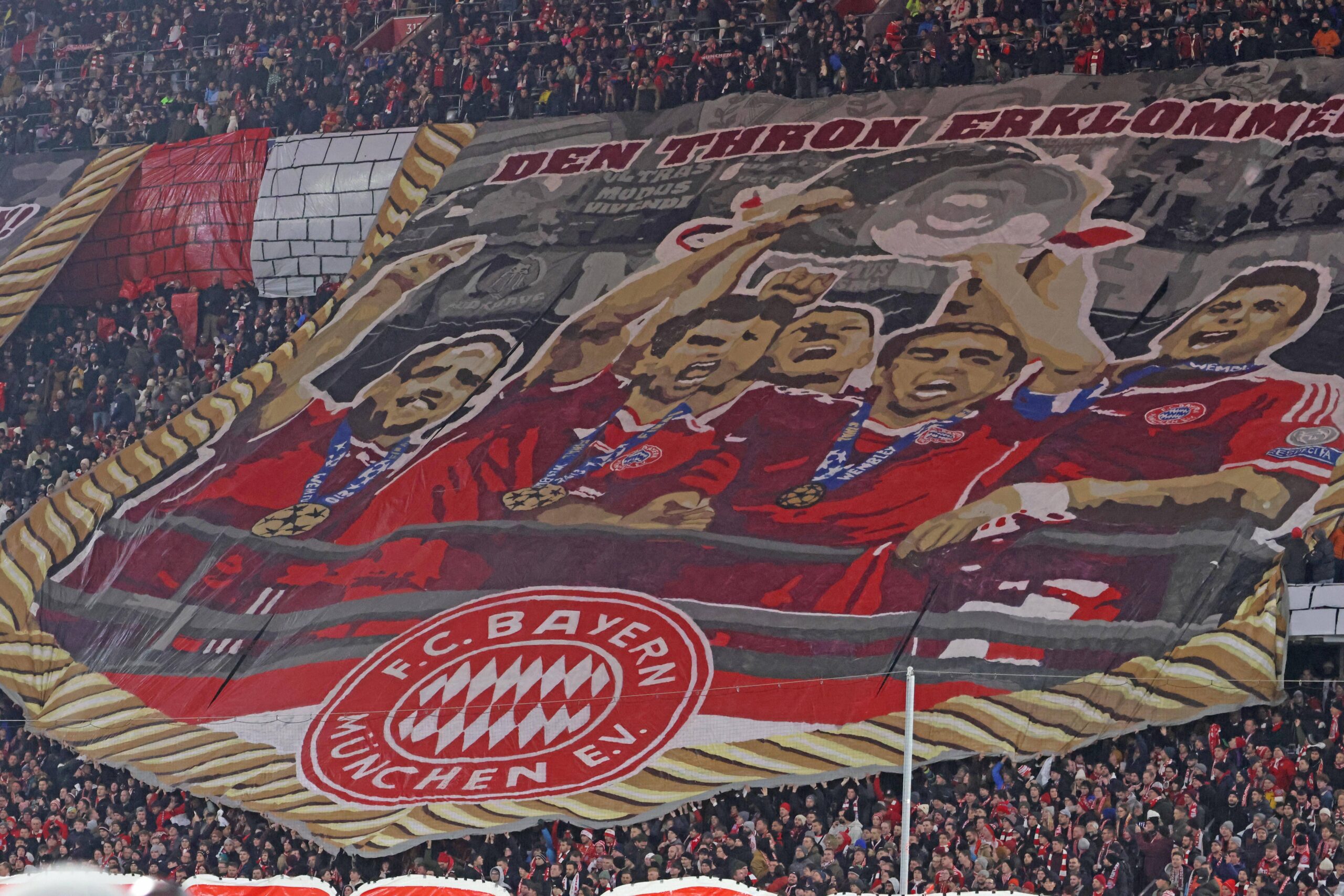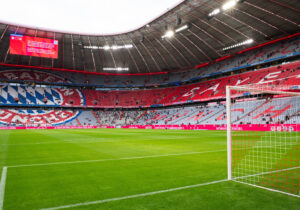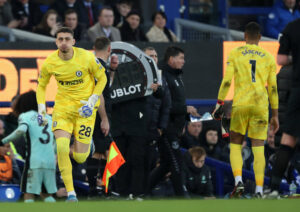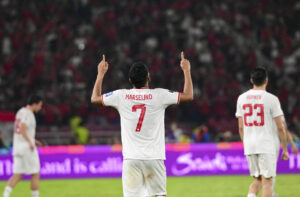With Germany as well as continental European football being on a winter break now, it is a good time to talk about a remarkable documentary that focuses on Bayern Munich’s journey to the first treble in its history in 2013 and the years leading up to it. Bayern Munich: The Wembley Generation was made for the Bavarian club’s website streaming service FC Bayern TV PLUS.
It is divided into six episodes with many match scenes and interviews of former Bayern coaches, players, board members, and even some key opponent coaches and players. The Wembley Generation gets its name from the iconic stadium that hosted the 2013 UEFA Champions League final.
Bayern Munich: The Wembley Generation Review
Watch: Why you NEED to watcht he Bundesliga this year
“Turning Points”
The series begins in the abysmal 2008/09 season with coach Jürgen Klinsmann initially in charge. The former Germany boss had brought with him an incredibly large and diverse coaching staff. He also had many ideas on how to change every imaginable aspect of the way the first team went about its business. From bringing in fitness coaches to altering the aesthetics of the training pitch facilities, Klinsmann had a plan for everything. Even Uli Hoeneß and Karl Heinz Rummenigge, the two men ultimately responsible for his sacking near the end of the season, admitted that many of the coach’s ideas seemed innovative and in the long-term could even have produced success.
But football simply is a results business and Klinsmann didn’t have results in his favour. The team were far away from the top of the Bundesliga table, they were given quite a lesson by Barcelona in the Champions League quarterfinals and did not reach the latter stages of the German DFB Cup either. Jupp Heynckes then came in on an interim basis and ensured that the team qualified for the next season’s Champions League, something that proved crucial for long-term success.
They were then able to bring in the experienced Dutchman Louis van Gaal as coach from AZ Alkmaar, as well as later signing his compatriot winger Arjen Robben for a bargain from Real Madrid. The latter turned out to be the missing puzzle piece to Bayern’s triumphs in subsequent seasons. With him in the team, Van Gaal shifted the first team’s formation from a 4-4-2 to a 4-2-3-1, which has largely remains the system of choice to this day. The tactician is visibly proud of this legacy he left at the club.
After a shaky group stage in Europe, Bayern came from behind to dismantle Juventus in the must-win last match of the section. With plenty of luck, they then overcame Fiorentina on the away-goals rule in the Round 16. Episode 1 of The Wembley Generation ends with the Bavarians learning their quarterfinal opponents: Manchester United.
“Death or Gladioli”
Arjen Robben scores a fizzer for Bayern Munich against Manchester United in 2010. pic.twitter.com/5PwuNbREFH
— Throwback Football (@ftblthrowbacks) September 20, 2023
Episode 2 shows Sir Alex Ferguson, who admitted that Bayern had been the better team in the iconic 1999 final, in which his United side beat them with two stoppage-time goals. He also asserted that United were far better in the 2010 quarterfinals, where the Bavarians took the first leg 2-1, before going down early 3-0 at Old Trafford, only to peg them back to 3-2 and thus advance on away goals.
In the semifinals of that Champions League term, the Munich team easily defeated Lyon, but they lost Franck Ribery to suspension in the final in the process. José Mourinho’s unstoppable Inter side then proved too much for the German record champions in the final.
Despite the loss, club leadership decided to celebrate Munich city hall, with the two domestic trophies they did win that year. Regardless of his initial reservations about the event, Van Gaal was pleasantly surprised at the great reception he and his team received from the fans. He declared that they were all dead after the loss to Inter, but that the supporters “brought them back to life “.
“Black and Yellow”
The third episode of The Wembley Generation series largely focuses on Bayern’s domestic troubles of the next two seasons. Van Gaal wanted to make youth team goalkeeper Thomas Kraft the side’s first-choice man between the sticks. The club hierarchy had other ideas, already working on a transfer to bring Schalke’s Manuel Neuer into the team instead.
Knowing now that in hindsight he was wrong, the ex-coach said in the film that he did not expect Neuer to be as great as he became. Kraft’s errors contributed to bad results and ultimately to Vam Gaal’s sacking. His longtime assistant Andries Jonker finished the season as boss, ensuring a Champions League qualification place for the team, as Jürgen Klopp’s Borussia Dortmund won the Bundesliga.
Heynckes then returned to Bayern, only to be outdone in the league by Dortmund as well. The episode ends with the arrival of Real Madrid’s “Galacticos” at Munich’s airport ahead of their Champions League semi-final first leg.
“Homesickness”
Episode four mostly deals with the desire of the team to become the first side in history to play a Champions League final at its home stadium, as the 2012 title game took place at the Allianz Arena. Ever since the stadium had been chosen for the game, the club hierarchy made it clear that Bayern needed to be there. After two hard-fought matches against Madrid, culminating in a dramatic penalty shoot-out, the Bavarians succeeded in reaching this historic occasion. Then-Real Madrid coach Mourinho even admits to having cried on the way home after the second leg.
The episode ends with the team missing out on both domestic titles to Borussia Dortmund. They lose the direct confrontation with the league leaders 1-0 away, before being destroyed by them 5-2 in the Cup final in May.
“Power Outage in Munich”
On this day, in 2012, Chelsea won the Champions League final against Bayern Munich thanks to a dramatic Didier Drogba winning penalty. 🏆
🎥 @ChampionsLeaguepic.twitter.com/7BLkqT0sS7
— Football Tweet ⚽ (@Football__Tweet) May 19, 2021
Only a week after said Cup disaster, they played the UCL final at home against Chelsea. The penultimate episode deals with the run-up to the match, as well as the game itself. Then-Chelsea manager Roberto Di Matteo, his goalkeeper Petr Cech, and other protagonists from both sides share their memories from the encounter. Cech gives insights into his preparation for the final and for the possibility of a shootout.
Having studied the penalty-taking tendencies of the major Bayern players he helped decide the match in the Blues’ favour. Meanwhile, the hesitancy on the part of many from the Bavarian side to take the spot kicks made Manuel Neuer step up and take one, which distracted him from his goalkeeping duties. Heynckes laments not having designated penalty takers himself.
“The Wembley Generation”
The final episode deals with the triumphant 2012/13 campaign and bears the name of the series. It especially focuses on how the defeats of the previous term brought the side closer together and how a few key moves in the transfer market made all the difference as well.
Ultimately, it showed Bayern win its first treble in club history, beating Dortmund, the rivals that had tormented them for the two previous seasons in the domestic Cup quarterfinals and in the Champions League final at Wembley as well. Robben, whose penalty misses in the previous season made him the villain, became the hero by scoring the key goals and thus exorcised the demons of 2012.
Final Thoughts – Bayern Munich: The Wembley Generation Review
The Wembley Generation is a worthwhile series that every Bayern fan should see, but it is also a nice watch for anyone.






